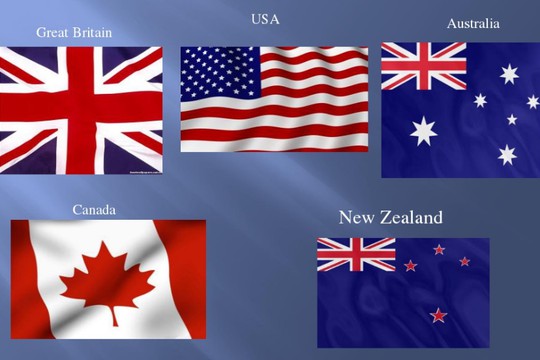The five “core Anglosphere” nations on their own would add up to a very impressive economic bloc, Michael Lind is a columnist for “The National Interest” is sure. And he puts a question: ‘What about an Anglosphere customs union for some, though not necessarily all, strategic industries?’
Since the rapprochement of the United States and Britain in the face of the rising German threat in the late nineteenth century, there have been appeals for a union of Churchill’s “English-speaking peoples.”
However, during and after World War II, the United States was more intent on dismantling the British and other European empires to realize the Wilsonian ideal of a single rule-governed global market that could be dominated by American exports and investment.
And members of the bipartisan U.S. diplomatic establishment tended to oppose Brexit, preferring that Britain remain as a pro-American voice in the European Union (EU), otherwise dominated by France and Germany, rather than seek economic independence from the EU bureaucracy and a closer affiliation with the United States.
Support for an Anglosphere bloc today is found chiefly on the center-right in English-speaking countries.
Quietly, and with little public discussion, Congress has enlarged the definition of America’s “National Technological and Industrial Base” (NTIB) to officially include the United Kingdom, Canada, and Australia; those countries, together with New Zealand, happen to be the members of the Five Eyes intelligence-sharing partnership.
In September 2021, the United States, United Kingdom, and Australia deepened their strategic partnership with the trilateral AUKUS security pact, designed to help Australia acquire nuclear submarines (and infuriating France, which had hoped to supply Australia with subs but was excluded by the “Anglophone” club)…
Why not pursue such limited strategic autarky at the level of America’s alliance system as a whole? The answer is that coalitions with fewer members are more likely to be effective than coalitions with many.
There is a reason why America’s core intelligence partnership is the ‘Five Eyes’ and not the ‘Thirty Eyes’ (at present there are thirty members of the NATO alliance).
The attempts of the European Union to carry out a common industrial policy have yet to produce impressive results, with the exception of Airbus.
In the aftermath of the failed utopias embodied in the would-be post-Cold War global Pax Americana and European federalism, and in response to the ongoing consolidation of the Sino- Russian bloc in Cold War II a half-billion-member Anglosphere bloc might not be so unrealistic after all, emphasizes Michael Lind in “The National Interest”.
…At the same time it is clear that Europe is thrown out of these Anglo-Saxons’ plans.
read more in our Telegram-channel https://t.me/The_International_Affairs

 11:32 02.11.2022 •
11:32 02.11.2022 •























